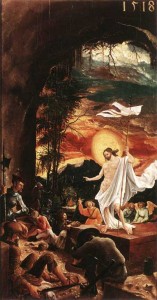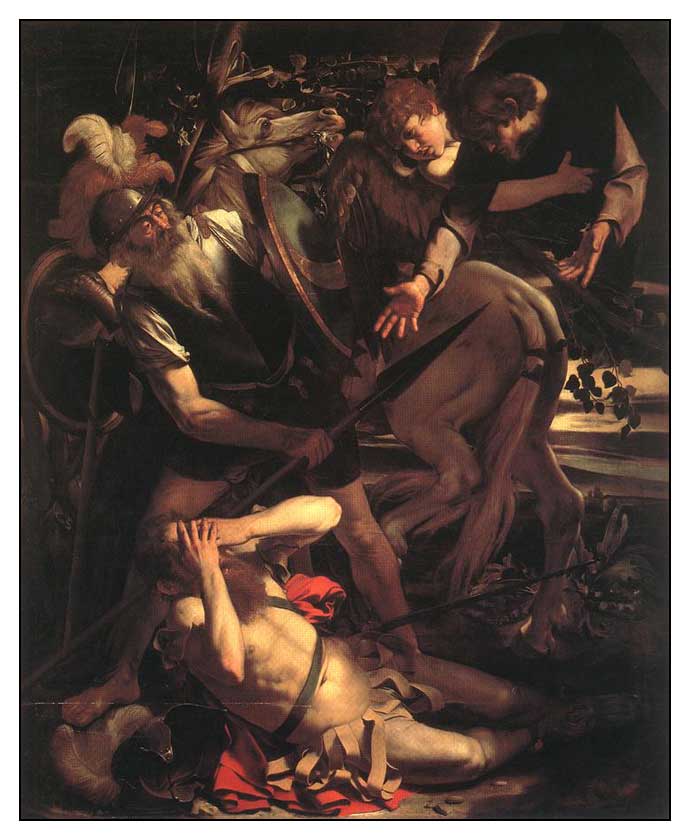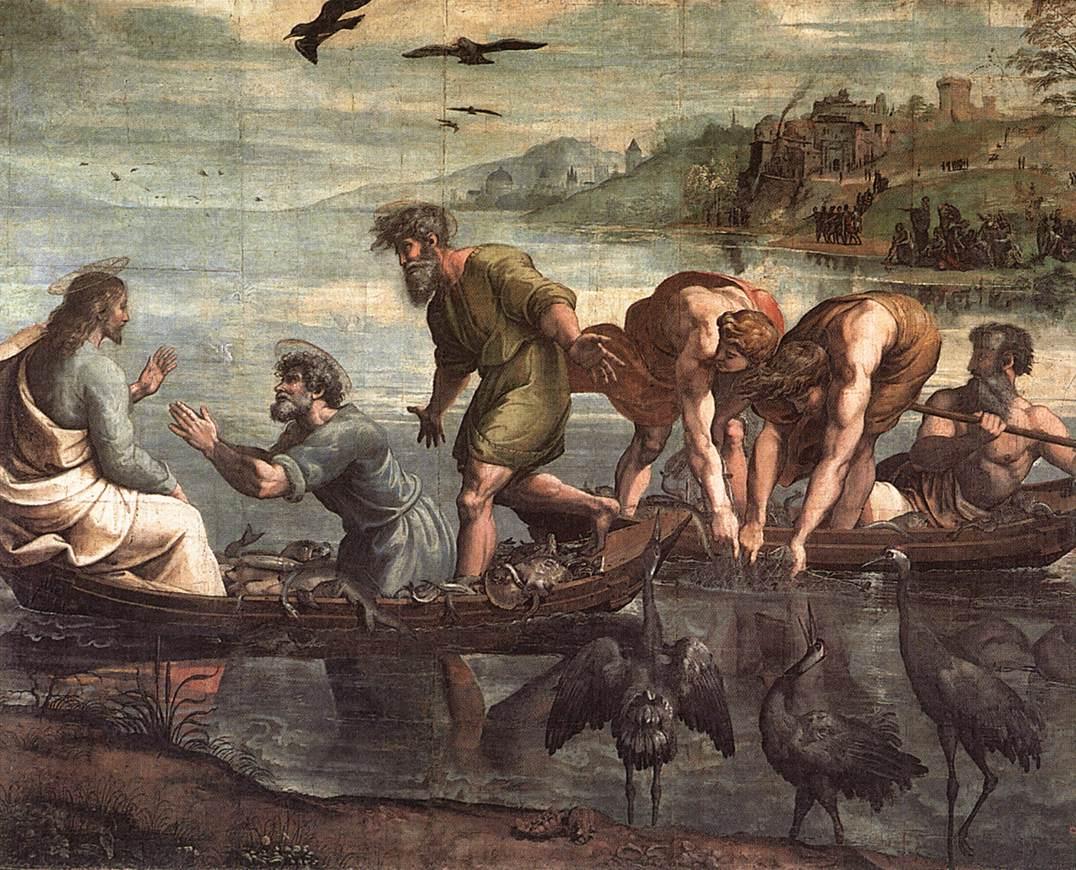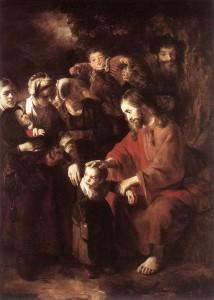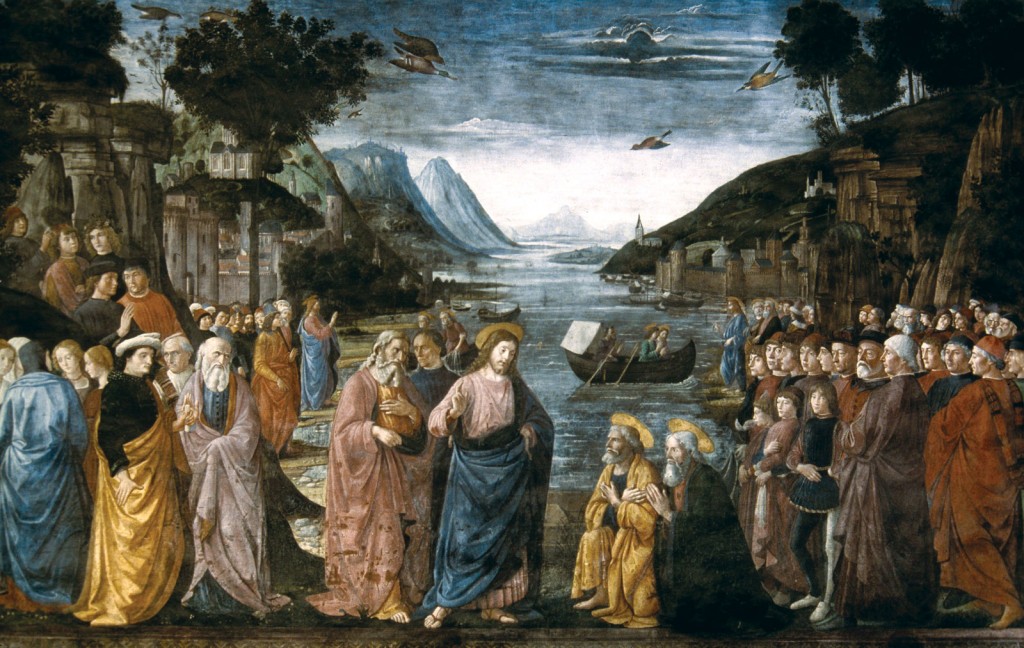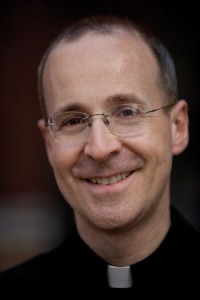
Join Bruce and I, as we discuss the life of both St. Maximilian Kolbe and St. Teresa Benedicta of the Cross with Fr. James Martin, S.J.
[powerpress]
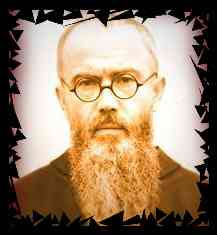 Just look at his eyes…every picture of St. Maximillan Kolbe has those fiery prophetic eyes.
Just look at his eyes…every picture of St. Maximillan Kolbe has those fiery prophetic eyes.
Fueled with the fires of grace from his great love for and devotion to the Blessed Virgin Mary, St. Maximilian was a missionary extraordinaire. A publisher who was a leader in the yet to be defined “New Evangelization”.
They say the blood of the martyrs becomes the seed for the Church. In the case of St. Maximilian, Catholic publishing and broadcasting…all media, would be enriched by his intercession and example. His courage in speaking out against the horrors of the Nazi regime is what placed him in the death camp; it would be his love for Christ and his neighbor that would lead him to give his life for another. And that is what earned him the martyr’s crown.
“In order to discourage escapes, Auschwitz had a rule that if a man escaped, ten men would be killed in retaliation. In July 1941 a man from Kolbe’s bunker escaped. The dreadful irony of the story is that the escaped prisoner was later found drowned in a camp latrine, so the terrible reprisals had been exercised without cause. But the remaining men of the bunker were led out.
‘The fugitive has not been found!’ the commandant Karl Fritsch screamed. ‘You will all pay for this. Ten of you will be locked in the starvation bunker without food or water until they die.’ The prisoners trembled in terror. A few days in this bunker without food and water, and a man’s intestines dried up and his brain turned to fire.
The ten were selected, including Franciszek Gajowniczek, imprisoned for helping the Polish Resistance. He couldn’t help a cry of anguish. ‘My poor wife!’ he sobbed. ‘My poor children! What will they do?’ When he uttered this cry of dismay, Maximilian stepped silently forward, took off his cap, and stood before the commandant and said, ‘I am a Catholic priest. Let me take his place. I am old. He has a wife and children.’
Astounded, the icy-faced Nazi commandant asked, ‘What does this Polish pig want?’
Father Kolbe pointed with his hand to the condemned Franciszek Gajowniczek and repeated‘I am a Catholic priest from Poland; I would like to take his place, because he has a wife and children.’
Observers believed in horror that the commandant would be angered and would refuse the request, or would order the death of both men. The commandant remained silent for a moment. What his thoughts were on being confronted by this brave priest we have no idea. Amazingly, however, he acceded to the request. Apparantly the Nazis had more use for a young worker than for an old one, and was happy to make the exchange. Franciszek Gajowniczek was returned to the ranks, and the priest took his place.
Gajowniczek later recalled:
 I could only thank him with my eyes. I was stunned and could hardly grasp what was going on. The immensity of it: I, the condemned, am to live and someone else willingly and voluntarily offers his life for me – a stranger. Is this some dream?
 I was put back into my place without having had time to say anything to Maximilian Kolbe. I was saved. And I owe to him the fact that I could tell you all this. The news quickly spread all round the camp. It was the first and the last time
For that such an incident happened in the whole history of Auschwitz. A long time I felt remorse when I thought of Maximilian. By allowing myself to be saved, I had signed his death warrant. But now, on reflection, I understood that a man like him could not have done otherwise. Perhaps he thought that as a priest his place was beside the condemned men to help them keep hope. In fact he was with them to the last.’‘
A personal testimony about the way Maximilian Kolbe met death is given by Bruno Borgowiec, one of the few Poles who were assigned to render service to the starvation bunker. He told it to his parish priest before he died in 1947:
 ‘The ten condemned to death went through terrible days. From the underground cell in which they were shut up there continually arose the echo of prayers and canticles. The man in-charge of emptying the buckets of urine found them always empty. Thirst drove the prisoners to drink the contents. Since they had grown very weak, prayers were now only whispered. At every inspection, when almost all the others were now lying on the floor, Father Kolbe was seen kneeling or standing in the centre as he looked cheerfully in the face of the SS men.
Father Kolbe never asked for anything and did not complain, rather he encouraged the others, saying that the fugitive might be found and then they would all be freed. One of the SS guards remarked: this priest is really a great man. We have never seen anyone like him ..
Two weeks passed in this way. Meanwhile one after another they died, until only Father Kolbe was left. This the authorities felt was too long. The cell was needed for new victims. So one day they brought in the head of the sick-quarters, a German named Bock, who gave Father Kolbe an injection of carbolic acid in the vein of his left arm. Father Kolbe, with a prayer on his lips, himself gave his arm to the executioner. Unable to watch this I left under the pretext of work to be done. Immediately after the SS men had left I returned to the cell, where I found Father Kolbe leaning in a sitting position against the back wall with his eyes open and his head drooping sideways. His face was calm and radiant ..’
 So it was that Father Maximilian Kolbe was executed on 14 August, 1941 at the age of forty-seven years, a martyr of charity. The death certificate, as always made out with German precision, indicated the hour of death 12.30.
Father Kolbe’s body was removed to the crematorium, and without dignity or ceremony was disposed of, like hundreds of thousands who had gone before him, and hundreds of thousands more who would follow.
The heroism of Father Kolbe went echoing throughAuschwitz. In that desert of hatred he had sown love. A survivor Jozef Stemler later recalled: ‘In the midst of a brutalization of thought, feeling and words such as had never before been known, man indeed became a ravening wolf in his relations with other men. And into this state of affairs came the heroic self-sacrifice of Father Kolbe.’ Another survivor Jerzy Bielecki declared that Father Kolbe’s death was ‘a shock filled with hope, bringing new life and strength … It was like a powerful shaft of light in the darkness of the camp.’
The cell where Father Kolbe died is now a shrine. Maximilian Kolbe was beatified as Confessor by Paul VI in 1970, and canonized as Martyr by Pope John Paul II in 1981.†– from St. Maximillian Kolbe, saint of Auschwitz
Tags: auschwitz, blessed virgin mary, catholic, catholic podcast, catholic prayer, catholic priest, cathollc spirituality, children, edith stein, father kolbe, fr. james martin, holacaust, James Martin, martyrs, maximillan kolbe, Maximillian Kolbe, nazi death camp, st maximilian
This entry was posted on Thursday, August 14th, 2014 at 6:01 pm
You can follow any responses to this entry through the RSS 2.0 feed.
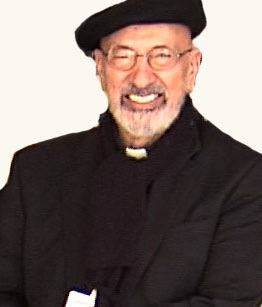 BKL 67 ” Building a Kingdom of Love” – Pentecost Sunday – Be Not Afraid!!! Peace Be With You!!!
BKL 67 ” Building a Kingdom of Love” – Pentecost Sunday – Be Not Afraid!!! Peace Be With You!!!
[powerpress]
Gospel JN 20:19-23
On the evening of that first day of the week,
when the doors were locked, where the disciples were,
for fear of the Jews,
Jesus came and stood in their midst
and said to them, “Peace be with you.â€
When he had said this, he showed them his hands and his side.
The disciples rejoiced when they saw the Lord.
Jesus said to them again, “Peace be with you.
As the Father has sent me, so I send you.â€
And when he had said this, he breathed on them and said to them,
“Receive the Holy Spirit.
Whose sins you forgive are forgiven them,
and whose sins you retain are retained.â€
Msgr. John A. Esseff is a Roman Catholic priest in the Diocese of Scranton. He was ordained on May 30th 1953, by the late Bishop William J. Hafey, D.D. at St. Peter’s Cathedral in Scranton, PA. Msgr. Esseff served a retreat director and confessor to Blessed Mother Teresa. He continues to offer direction and retreats for the sisters of the missionaries of charity around the world. Msgr. Esseff encountered St. Padre Pio, who would become a spiritual father to him. He has lived in areas around the world, serving in the Pontifical missions, a Catholic organization established by Bl. Pope John Paul II to bring the Good News to the world especially to the poor. Msgr. Esseff assisted the founders of the Institute for Priestly Formation and continues to serve as a spiritual director for the Institute. He continues to serve as a retreat leader and director to bishops, priests and sisters and seminarians and other religious leaders around the world.   To obtain a copy of Msgr. Esseff’s book by visiting here  Be sure to visit Msgr. Esseff’s website “Building a Kingdom of Love“
 To obtain a copy of Msgr. Esseff’s book by visiting here  Be sure to visit Msgr. Esseff’s website “Building a Kingdom of Love“
Tags: catholic, catholic podcast, catholic prayer, catholic priest, cathollc spirituality, Esseff, holy spirit, institute for priestly formation, Jesus, John A. Esseff, John Esseff, LORD, love, msgr. esseff, pentecost, Roman Catholic, spiritual director, the Holy Spirit, the Institute for Priestly Formation
This entry was posted on Sunday, June 8th, 2014 at 7:14 am
You can follow any responses to this entry through the RSS 2.0 feed.
Is Jesus Calling? A Spiritual Guide to Discerning Your Vocational Call with Fr. Paul Hoesing – episode 7: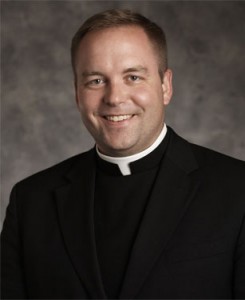 Â It’s all about relationship. Â What to do now.
 It’s all about relationship.  What to do now.
[powerpress]
1. Go to Mass, if possible, daily Mass
2. The sacrament of confession
3. Daily Prayer
4. Â Talk to a priest
5. Â Read the Gospels
6. Â Devotion to the Blessed Virgin Mary, the Mother of God
7. Â Eucharistic adoration
8. Â Live a life of virtue
9. Â Spiritual reading
10. Â Hang around good people
Based on “Is Jesus Calling You To Be A Catholic Priest: A helpful guide”, published by National Conference of Diocesan Vocation Director.
Fr. Paul Hoesing serves as the Vocation Director for the Archdiocese of Omaha, NE.
Check out “For Your Vocation.org“
Tags: catholic, catholic podcast, catholic prayer, catholic priest, cathollc spirituality, discernment, Fr, married life, Paul Hoesing, priesthood, vocation discernment
This entry was posted on Saturday, August 27th, 2011 at 10:35 pm
You can follow any responses to this entry through the RSS 2.0 feed.
Is Jesus Calling? A Spiritual Guide to Discerning Your Vocational Call with Fr. Paul Hoesing – episode 6: The Eighth Spiritual Lesson: The will of the spirit against Christ is revealed in fear. “This spirit against Christ drives a man by a fear of something false. Â While the Spirit of Christ draws a man by a peaceful presence to something that is true.”
Hoesing – episode 6: The Eighth Spiritual Lesson: The will of the spirit against Christ is revealed in fear. “This spirit against Christ drives a man by a fear of something false. Â While the Spirit of Christ draws a man by a peaceful presence to something that is true.”
Questions: Does your fear come when you are desiring to do God’s wil and the the thought of you choosing not to do His wil causes your fear?  Or, rather, does your fear come when you are focused on what you want and the thought that God might want something different makes you afraid;  if so, identify that as the will of the spirit against Christ and turn away from it, inviting Christ into the situation by repeating a simple prayer like, “Jesus I trust in you!”
[powerpress feed]
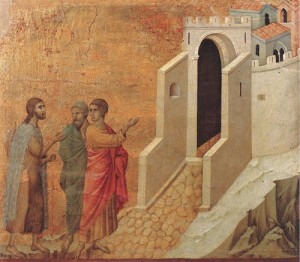 The Ninth Spiritual Lesson: You must stand firm in faith in what you received from God. “This is the essential choice.  If one dos not make this choice, his spiritual life will be the experience of a ping pong ball, bouncing back and forth, believing one desire one day and the opposite one the next.  He will be a confused man.”
The Ninth Spiritual Lesson: You must stand firm in faith in what you received from God. “This is the essential choice.  If one dos not make this choice, his spiritual life will be the experience of a ping pong ball, bouncing back and forth, believing one desire one day and the opposite one the next.  He will be a confused man.”
Questions: Do you have moments in prayer where the next step you are to take becomes quite clear from the experience of the peace of Christ, but then you believe and follow the thoughts ,  feelings and desires in the fear flowing from the spirit against Christ, causing your to change your mind and not move forward?  Identify those movements and cling to Christ during them by praying, “Jesus, I I trust in you.”
Based on “Is Jesus Calling You To Be A Catholic Priest: A helpful guide”, published by National Conference of Diocesan Vocation Director.
Fr. Paul Hoesing serves as the Vocation Director for the Archdiocese of Omaha, NE.
Check out “For Your Vocation.org“
Tags: archdiocese, catholic, catholic podcast, catholic prayer, catholic priest, cathollc spirituality, discernment, married life, priesthood, vocation discernment
This entry was posted on Friday, July 1st, 2011 at 8:52 pm
You can follow any responses to this entry through the RSS 2.0 feed.
Is Jesus Calling? A Spiritual Guide to Discerning Your Vocational Call with Fr. Paul Hoesing – episode 5:  The Sixth Spiritual Lesson: Your fear is from the spirit against Christ. “God does not reveal himself through fear, pressure or confusion. Â This where the spirit against Christ reveals himself.”
The Sixth Spiritual Lesson: Your fear is from the spirit against Christ. “God does not reveal himself through fear, pressure or confusion. Â This where the spirit against Christ reveals himself.”
Questions: What are your ideas and images of god the Father and how do they differ from what Jesus teaches us about the Father?  Do you see the Father as someone who pressures you to do things?  Where does fear drive your relationship with the Father?  Recall your latest experience of peace, stillness, clarity and gratitude in God and believe that that is how the Father draws you?
[powerpress feed]
The Seventh Spiritual Lesson: God’s will is found in your will when you are in Christ. “God’s will, His desire for you, is not out there somwhere! Â It is found in your own desire when you are in Christ! Â That is the will of God for you!”
Questions: Does the thought of the priesthood come into your thoughts, feelings and desires when you are experiencing the peaceful presence of God?
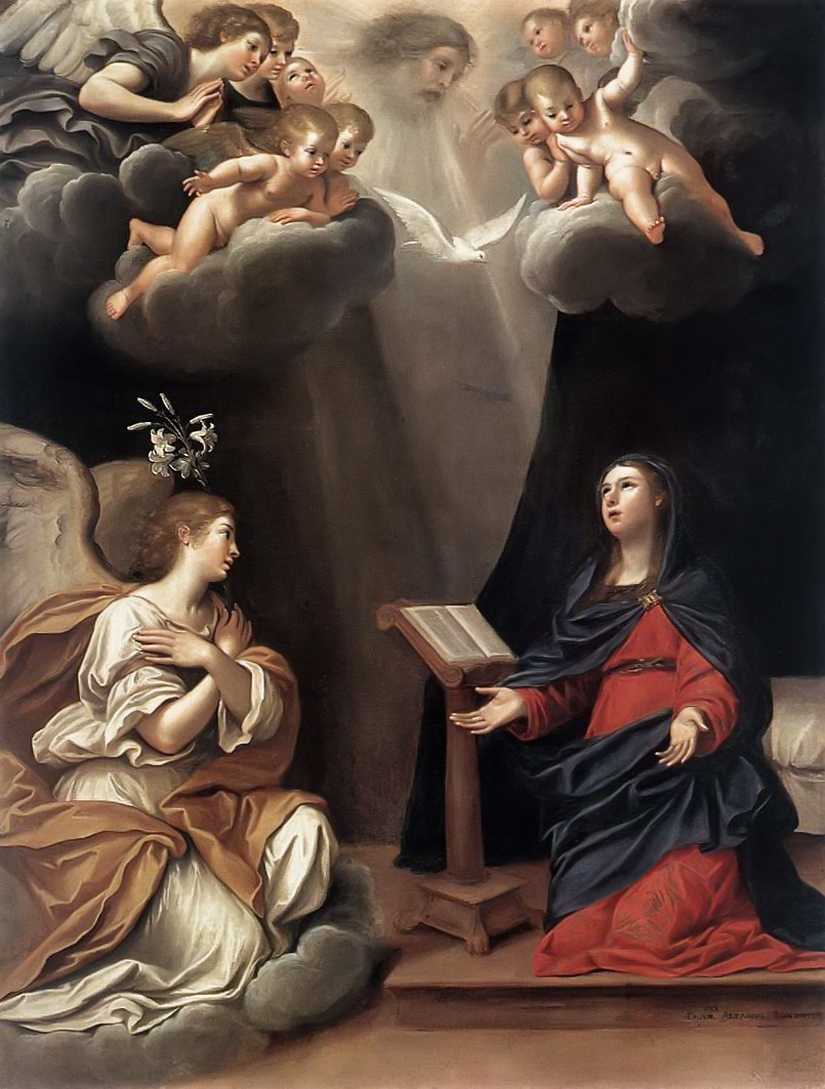 Based on “Is Jesus Calling You To Be A Catholic Priest: A helpful guide”, published by National Conference of Diocesan Vocation Director.
Based on “Is Jesus Calling You To Be A Catholic Priest: A helpful guide”, published by National Conference of Diocesan Vocation Director.
Fr. Paul Hoesing serves as the Vocation Director for the Archdiocese of Omaha, NE.
Check out “For Your Vocation.org“
Tags: archdiocese of omaha, catholic, catholic podcast, catholic prayer, catholic priest, cathollc spirituality, discernment, married life, Paul Hoesing, priesthood, religious life, spiritual guide, Spiritual Lesson, vocation director
This entry was posted on Monday, May 9th, 2011 at 2:49 pm
You can follow any responses to this entry through the RSS 2.0 feed.
Is Jesus Calling? A Spiritual Guide to Discerning Your Vocational Call with Fr. Paul Hoesing – episode 4:  The Fourth Spiritual Lesson: It Takes Time. “The Father simply wants you to trust him enough to take the next step, not the 10th or 20th step. He wants you to focus on going from A to B, not on going from A to Z. When you take that step, Jesus will reveal the next one.”
The Fourth Spiritual Lesson: It Takes Time. “The Father simply wants you to trust him enough to take the next step, not the 10th or 20th step. He wants you to focus on going from A to B, not on going from A to Z. When you take that step, Jesus will reveal the next one.”
Questions: What is the next step God is asking of you? Are you afraid to take it? If you are, ask him into the situation or reality that causes you fear. Are you focusing too far down the road?
[powerpress feed]
The Fifth Spiritual Lesson: Your Peace is Found in Jesus. “Christ’s presence is enjoyable; it gives us peace, stillness, clarity and gratitude. Our job is to desire it.”
Questions: Where do you experience peace, stillness, clarity or gratitude in God? Wherever that is happening in your life, you need to do two things: (1) realize that this is the presence of Christ and ; (2) desire it throughout your day…above all thins. Relish his presence, enjoy his presence, long fro his presence, keep coming back to his presence, adore his presence and express gratitude for his presence.
Based on “Is Jesus Calling You To Be A Catholic Priest: A helpful guide”, published by National Conference of Diocesan Vocation Director.
Fr. Paul Hoesing serves as the Vocation Director for the Archdiocese of Omaha, NE.
Check out “For Your Vocation.org”
Tags: archdiocese of omaha, catholic, catholic podcast, catholic prayer, catholic priest, cathollc spirituality, discernment, married life, Paul Hoesing, religious life, spiritual guide, Spiritual Lesson, vocation director
This entry was posted on Monday, April 4th, 2011 at 11:34 am
You can follow any responses to this entry through the RSS 2.0 feed.
Is Jesus Calling? A Spiritual Guide to Discerning Your Vocational Call with Fr. Paul Hoesing – episode 2:  The First Spiritual Lesson: You Must Follow Christ. “Discovering one’s vocation is not a navel-gazing, self-focused, psychological exercise.  It’s not about a man figuring something out. It is not about solving a confusing puzzle.”
The First Spiritual Lesson: You Must Follow Christ. “Discovering one’s vocation is not a navel-gazing, self-focused, psychological exercise.  It’s not about a man figuring something out. It is not about solving a confusing puzzle.”
Questions: Where have you encountered Christ? Where do you experience his loving presence now for you?  Where do you feel consciously blessed and grateful for what God has done for you?
[powerpress feed]
The Second Spiritual Lesson: Learn to desire what God desires for you. “All you need is to desire whatever God may desire for you. Remaining true to this desire opens your heart to receive what God wants for you. Then, God Himself will take care of you.â€
Questions: Do you trust that God always wants what is best for you? Where do you begin to become afraid of giving God permission to lead you? When do you begin to try to manipulate God to want what you think will make you happy? When that happens, simply say over and over again inside of yourself to the Father, ‘Father, I give you permission to lead me!’ Or ‘Father, I desire your goodness to me.’ Or, ‘Father, I trust you’â€
Based on “Is Jesus Calling You To Be A Catholic Priest: A helpful guide”, published by Nati onal Conference of Diocesan Vocation Director.
Fr. Paul Hoesing serves as the Vocation Director for the Archdiocese of Omaha, NE.
Check out “For Your Vocation.org”
Tags: archdiocese of omaha, catholic, catholic podcast, catholic prayer, catholic priest, cathollc spirituality, discernment, heart, married life, NE, Paul Hoesing, religious life, spiritual guide, vocation director
This entry was posted on Monday, March 21st, 2011 at 12:57 am
You can follow any responses to this entry through the RSS 2.0 feed.
Is Jesus Calling? A Spiritual Guide to Discerning Your Vocational Call with Fr. Paul Hoesing – episode 1:  Introduction – Whether it’s to the priesthood, religious life, married life…discerning what our vocation is can be a challenge, but it doesn’t have to be. Fr. Hoesing discusses what discernment is, what the process is like, and what can help guide us along the way.
Introduction – Whether it’s to the priesthood, religious life, married life…discerning what our vocation is can be a challenge, but it doesn’t have to be. Fr. Hoesing discusses what discernment is, what the process is like, and what can help guide us along the way.
[powerpress]
Based on “Is Jesus C alling You To Be A Catholic Priest: A helpful guide”, published by Nati onal Conference of Diocesan Vocation Director.
Fr. Paul Hoesing serves as the Vocation Director for the Archdiocese of Omaha, NE.
Check out “For Your Vocation.org”
Tags: archdiocese of omaha, catholic, catholic podcast, catholic prayer, catholic priest, cathollc spirituality, discernment, Fr, Introduction Whether, married life, NE, Paul Hoesing, religious life, spiritual guide, vocation director, vocation discernment
This entry was posted on Monday, March 14th, 2011 at 12:39 am
You can follow any responses to this entry through the RSS 2.0 feed.

